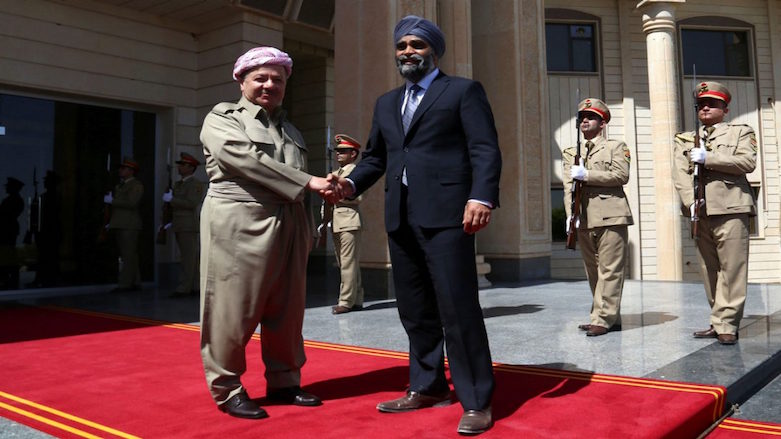2017-01-12 19:37:00
Canadian officials are drafting legal agreements to be signed by both Baghdad and the Kurdistan Regional Government (KRG) before an arms delivery.
In December, Canadian Minister of National Defense Harjit Sajjan visited the Kurdistan Region and promised further military assistance to the Peshmerga forces.
Canada’s National Defense spokesperson Daniel Le Bouthillier said his country was trying to find the best arm suppliers, but also working on drawing up a contract.
Without offering further details, the Canadian government said the weapons supplied to Kurds would be purchased on the open market for USD $9.5 million.
The shipment is expected to include rifles, machine guns, and light mortars.
As Kurds are engaged in an expensive fight against the Islamic State (IS), the Canadian Liberal government declared in February Kurds would receive small arms, ammunition, and optical sights.
Canada was initially concerned about Baghdad’s objection to direct arming of the Kurds.
The country is now focused on drafting a contract to ensure the supplied arms would not be used in war crimes later.
The agreements “will help ensure adequate controls are in place to govern the use of the equipment,” Le Bouthillier said.
Last week, Amnesty International (AI) published a report stating weapons provided by Russia and Iran were being used in Iraq for kidnappings and murder.
AI explained supplier countries “must ensure” weapons were not at risk and were well-protected and managed.
“This should involve strengthening controls over each stage of the arms transfer process, including transportation, delivery mechanisms, stockpiling, end use, and eventual decommissioning,” AI said.
“Ultimately, it is incumbent on the states exporting to Iraq to demonstrate that there is no substantial risk that arms will be used for serious violations of international human rights and humanitarian law,” the report concluded.
Kurds have vehemently denied any violation of human rights in their region and by their Peshmerga forces.
Canada did not clarify when the weapons would arrive in the Region.
When Canadian soldiers first arrived in Kurdistan to help fight IS in 2014, they wore the Kurds’ distinctive red, white, and green flag on their uniforms next to the Canadian maple leaf.


